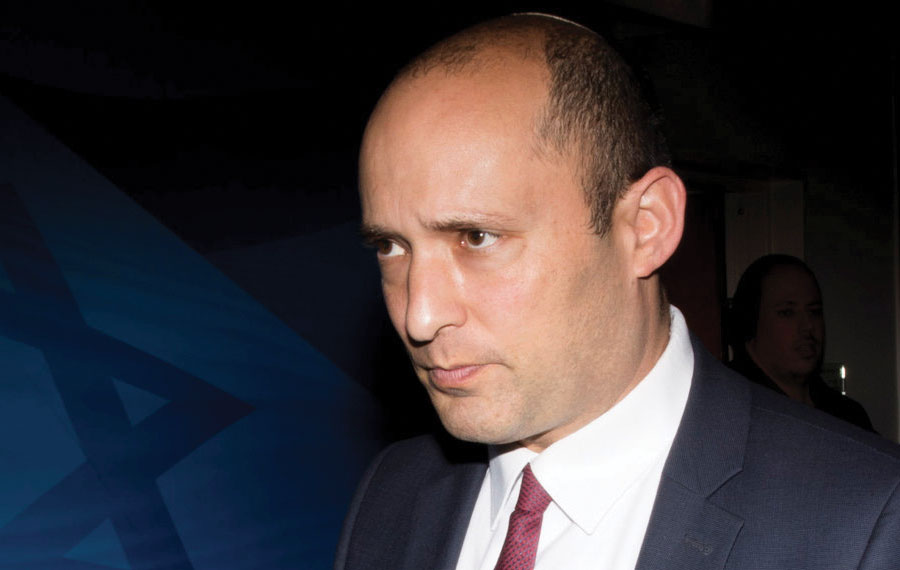 Photo by Abir Sultan/Reuters
Photo by Abir Sultan/Reuters “It is a year that saw the highest number of Jews murdered in anti-Semitic attacks since the 1990s.”
— Naftali Bennett, Israel’s minister of Diaspora affairs
Naftali Bennett’s comment on 2018, based on a recent report issued by Israel’s Diaspora Affairs Ministry, sounds dramatic, but it is not. One attack — the October shooting massacre that killed 11 at the Tree of Life synagogue in Pittsburgh — made the year deadlier than previous years. One attack in 1994 — in which 85 were killed and hundreds injured by a suicide truck bomber who drove into the Israeli embassy in Buenos Aires, Argentina — made that year the deadliest in three decades.
One deadly attack does not tell us much about anti-Semitism. Jews can enjoy stability and acceptability and still have to contend with a deadly attack. Jews can suffer from instability and see a declining level of their acceptability without having to absorb deadly attacks.
What made 2018 so worrying was the rise of the combination of both — instability and death. Decline of tolerance in Europe, in America and in liberal circles as well as nationalist circles made 2018 feel as if the world was changing in ways that would make it less safe and less hospitable for Jews. It changed in ways that made it possible for people, on the political right and left, to resort to “the same stereotypical elements.”
Professor Deborah Lipstadt, author of “Antisemitism: Here and Now,” defined such hostility in an interview with The New Yorker. “It is the same old, same old,” Lipstadt said. “Things are changing, and we’ve got to find someone to blame it on.”
Lipstadt said that when it comes to anti-Semitism, “I know it when I see it.”
So, she must be the lucky one who knows for sure, even though other Jews continue to debate the report. For example, they probably will debate the emphasis that Israel’s Ministry of Diaspora Affairs put on the report that “70 percent of anti-Jewish attacks were anti-Israel in nature.” Some of these were attacks that more than a handful of Israel critics refuse to see as anti-Semitic. (They see it but still do not know it.) The ministry’s report also considers the right-wing, white-supremacist anti-Semitism of the United States to be as serious as the anti-Semitism seen in Europe’s Muslim communities. This perspective, too, can be another cause for Jewish debate: Is the real danger of anti-Semitism coming from the right wing or the left wing?
Right, left or both, one thing does not change: Anti-Semites might believe that Jews control the world, but the fact is that Jews cannot even control anti-Semitism. They have never had the power to tame anti-Semitism. They have never had the resources to reverse global trends of instability and populism that increase the likelihood of anti-Semitism. They did not have it in the early 20th century and they do not have it today. And they’d better remember that. They’d better not delude themselves that by being nicer or meaner, more visible or less visible, or by supporting or opposing this or that political camp, they can have real impact on where the world goes from here.
This does not mean that Jews should stay silent when anti-Semitism is on the rise. Exposing anti-Semitism is important. Drawing boundaries, beyond which views can no longer be considered legitimate, is crucial (if not always easy). Criticizing anti-Semitism that expresses itself in different settings (Charlottesville and the Women’s March) is elementary.
Having said that, and having done all that and more, Jews must go beyond simply expressing condemnation against acts of anti-Semitism — they must address it without illusions. Jews must not think that by fighting against the boycott, divestment and sanctions movement that they can eliminate anti-Semitism of the left. Jews must not assume that by working to unseat President Donald Trump that they can eliminate anti-Semitism of the right.
Jews did not create world disorder; they cannot create world order.
What, then, should Jews assume? That they must be strong, that they must have unity, that they must prepare for difficult times by solidifying their institutions and communities. This past week, when the world marked the annual international Holocaust Memorial Day on Jan. 27, the Jews were reminded that they have important and dedicated allies in the fight against anti-Semitism. And yet, what they must assume, what they must remember, is that these crucial allies do not have as much at stake in this fight as the Jews do.
Shmuel Rosner is senior political editor. For more analysis of Israeli and international politics, visit Rosner’s Domain at jewishjournal.com/rosnersdomain.























 More news and opinions than at a Shabbat dinner, right in your inbox.
More news and opinions than at a Shabbat dinner, right in your inbox.